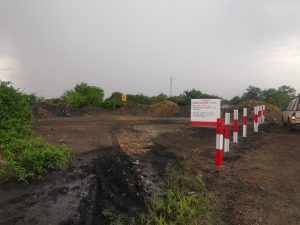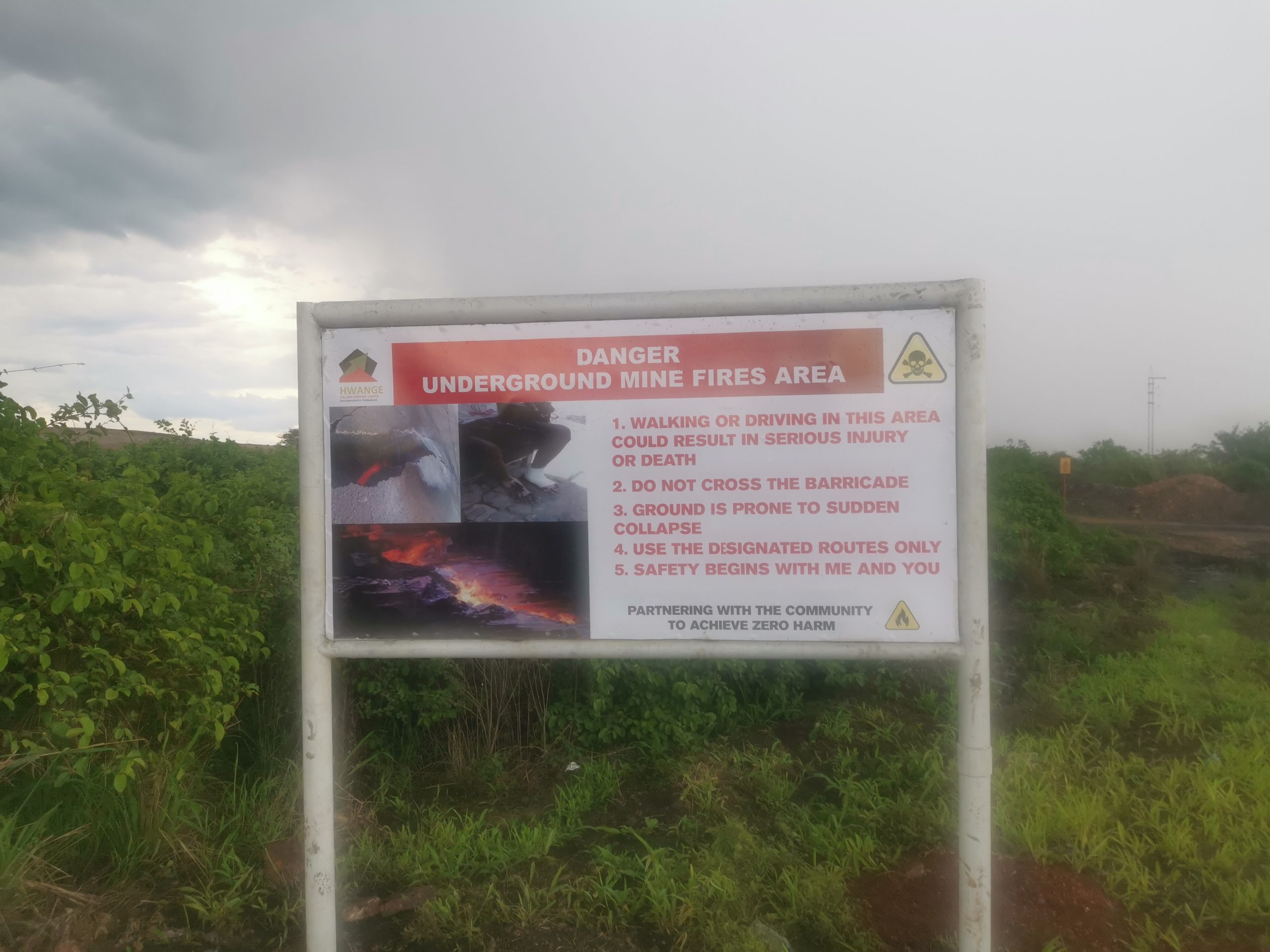BY NOKUTHABA DLAMINI
The government has pledged to ensure that a lasting solution is found to the underground fires in Hwange town after a contract was awarded to a German company to investigate the problem.
Hwange residents have raised concern about the fires that have led to deaths of people and damage to infrastructure such as roads.
The fires erupted in areas owned by Hwange Colliery Company Liimited (HCCL) and the giant coal miner late last year hired the German company, DMT, to investigate the fires.
DMT is expected to finish its work at the end of March.
Mines and Mining Development minister Winston Chitando told journalists during a recent tour of the affected areas that the government will ensure that action is taken once DMT submitted its recommendations.

Chitando addressing journalists in Hwange
“There is an issue of something happening underground and the consulting company said they need up until the end of March to finish their report, “Chitando.
“Afterwards, the government will ensure that serious action is taken to address the problem once and for all.”
HCCL was last month forced to issue a statement stating what it was going to curb the fires after pictures of damage on a road in the town caused by the fires circulated on social media.
The road, which links Makwika and Madumabisa villages, has since been closed.

A signpost warning residents about the prevalence of underground fires in Hwange
“They have engaged DNT, which is an international organisation tha specializes in cases of this nature to come and look at the possible exposures in the colliery’s old working facilities like in Number 2,” the minister added.
“There were reports of some instability (at the old colliery operating areas.
“So that engagement took place way before the reports, which circulated on social media, and its suffice to say that the international consultancy are here and their mandate is to fully investigate what happened.”
Chitando, however, said “the extent of the problem is a bit exaggerated.”
“In all fairness, I think there is a problem, make no mistake that’s why I am here, but the extent of the problem is probably a bit exaggerated,” he said.
“However, be that as it may, the fact that we have international experts who are involved shows the extent of the commitment, but I think let’s wait for their report and whatever they come up with after which decisive action will be taken.”
He said DMT was best suited for the job because it had done similar investigations around the world.
“They have done similar work in Asia, in the Middle East, so they are very experienced, “Chitando said
“They are looking at what caused that coal to come up and what is underneath and at this stage, indications are that there is no fire per ser.
“But there is some contamination to oxygen and some seams that seem to hold some coal near that area, so they will issue a report to make sure that whatever problem is there gets solved.
” It’s a matter which government takes seriously and it’s a matter that is being followed up, so at this stage we await what the consultancy will recommend”

This road was closed after it was damaged by the underground fires
Residents and civil society groups have been lobbying for quick intervention after the coal seam fires claimed the lives of several people and left others with permanent injuries.
In December, an eight-year-old Makwika girl was burnt to death by the fires at one of the company’s dumpsite areas.
HCCL managing director Charles Zinyemba said when the incident happened the girl, who was in the company of an adult had trespassed into a restricted area.
Zinyemba said the allegations that the deceased girl had walked over a kilometre to relieve herself due to poor service delivery was not true as the company supplied the residents with water every day.
To protect residents, Chitando said HCCL was carrying out awareness campaigns and also barricading the affected areas such as the Makwika road.

 Slider3 years ago
Slider3 years ago
 National4 years ago
National4 years ago
 Tourism and Environment4 years ago
Tourism and Environment4 years ago
 Special reports4 years ago
Special reports4 years ago
 Opinion4 years ago
Opinion4 years ago
 National4 years ago
National4 years ago
 National3 years ago
National3 years ago
 National3 years ago
National3 years ago






